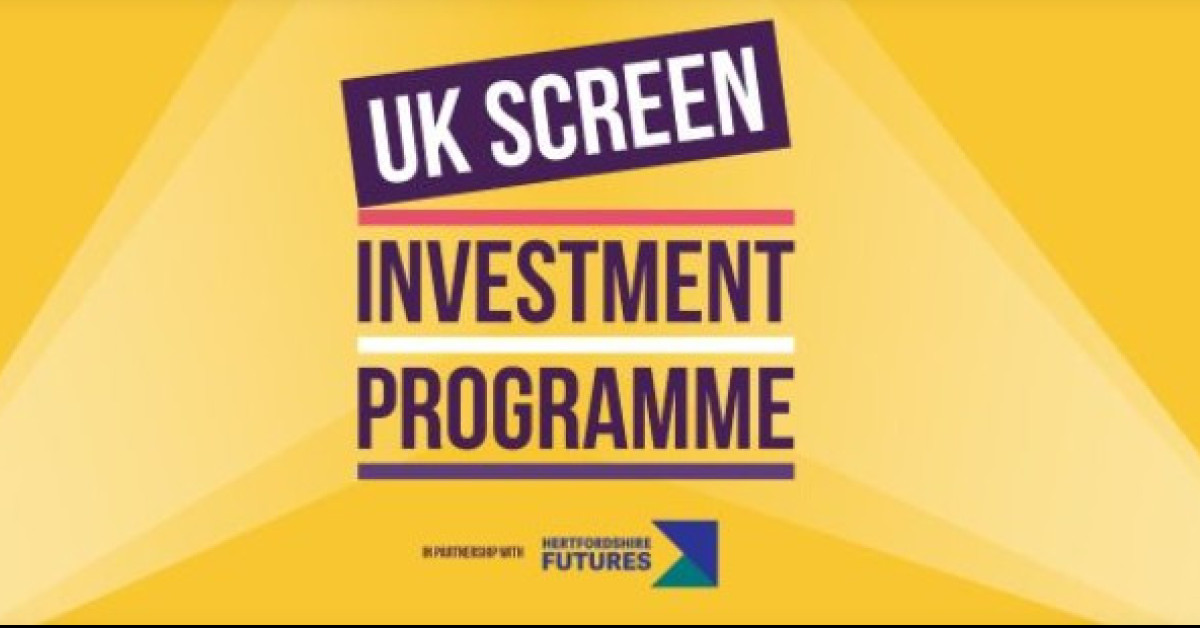A unified cross-sectoral voice backed by government strategy is key to ensuring the UK screen sector survives and thrives, according to industry experts.
The UK Screen Investment Programme’s Steering Group Committee members have shared their views on how they believe their sector needs to evolve to retain its global foothold. This involves bolstering both high-budget production and independents at the lower reaches of the spending scale, and expanding this support to all UK regions, and beyond the screen sector itself, to the wider supply chain.
David Conway, Chief Executive, Pinewood Studios, said: “Good growth should be across each budget category of film and high-end TV, from low budget indie productions through to blockbuster tentpoles, supported by a well-trained and diverse workforce.”
Jonathan Greenfield, Chief Executive, Oxygen Studios agreed, saying: “Positive, sustainable growth for the screen industry, to me, means inclusive development that benefits all sectors of the industry from high-budget productions to smaller independent projects.”
For there is concern that whilst the UK has seen growth in film production and high-end television in recent years, the volume of lower budget productions has dwindled. A trend recognised by the Government and which led to the introduction of the Independent Film Tax Credit in 2024.
As Celia Taylor, Co-founder Distant Voices and Board Member of Hertfordshire Futures, said we must “strengthen independent production companies to diversify content and retain IP, which in turn supports long-term economic resilience.”
Certainly, as Jonathan acknowledged, large budget productions “drive the industry forward” setting “trends in technology, storytelling, and global reach…providing jobs, stimulating local economies, and pushing the boundaries of what’s possible in film and television.” However, he stressed “indies are often where innovation happens, and they provide a voice for diverse stories and perspectives.”
“Additional funding, broadening distribution channels, and positive recognition and success,” would drive their growth,” he added.
Dr Stephen Partridge, Dean of School, Creative Arts, University of Hertfordshire, emphasised that indies are “where more diverse stories, such as those representing the interests and experiences of marginalised communities, can be supported.”
Describing good growth as “sustainable, ethical growth” in contrast to, for example, “inward investment without a viable workforce plan must be flawed,” he advocates for “servicing the ‘nursery slopes’ that independent productions represent” to foster “innovation and talent development in the context of lower budget productions.”
For MediaCityUK’s Richard Wormwell, Head of Production Innovation, Dock10, cross-collaborative growth is all-encompassing of the geography of the UK. “Good growth means a stronger commitment to regional production, ensuring that investment and job creation are spread beyond London and London and its satellite towns which fall into a qualifying ‘loophole’, but don’t deliver socio-economic benefits to the areas that were originally intended, or to those that really need them,” he said.
And at Hertfordshire Futures – UK Screen Investment Programme’s headline partner – cross-collaborative growth goes beyond screen production, to encompass wider sectors, from property to food and drink. “It is about building a sustainable, resilient, and inclusive ecosystem,” said Adam Morley, Creative Sector Lead. “This includes supporting the indie sector, skills investment, infrastructure & innovation, cross-sector collaboration. It includes enhancing links between the screen sector and visitor economy, hospitality, real estate, and tech industries to maximise economic impact, ensuring that growth benefits wider communities.”
Consensus among the UK Screen Investment Programme’s members is that government backing, too, is vital to driving the sector’s collaborative growth.
“We have to ensure that our industry-wide ‘one voice’ is heard by the government and, importantly, that their support and incentive schemes continues to provide, and further enhance, the platform for a successful UK film and TV industry,” said Jonathan.
He described the UK’s tax incentive schemes—34% for film/high-end TV and 53% for lower-budget films—as a “gold standard” international. He also emphasised that ongoing government and Valuation Office Agency support is crucial to achieving a sustainable business rating system. “It’s imperative that these tax incentives are maintained and enhanced to sustain our international competitiveness in this global market,” he added.
Agreeing with the need for strategy and policy backing from Government, David noted “that it is a fragile time in the film and TV industry, with many other countries vying for the inward investment which the UK currently benefits from.”
“Without government support on items such as incentive arrangements, affordable business rates and assistance in coordinating skills development, the UK could lose its competitive advantage and we face shrinkage rather than growth in the screen industries,” he said.
One-voice approach bolstered by government is vital for UK screen sector’s future success
By Jolene Hill | 14th April, 2025

